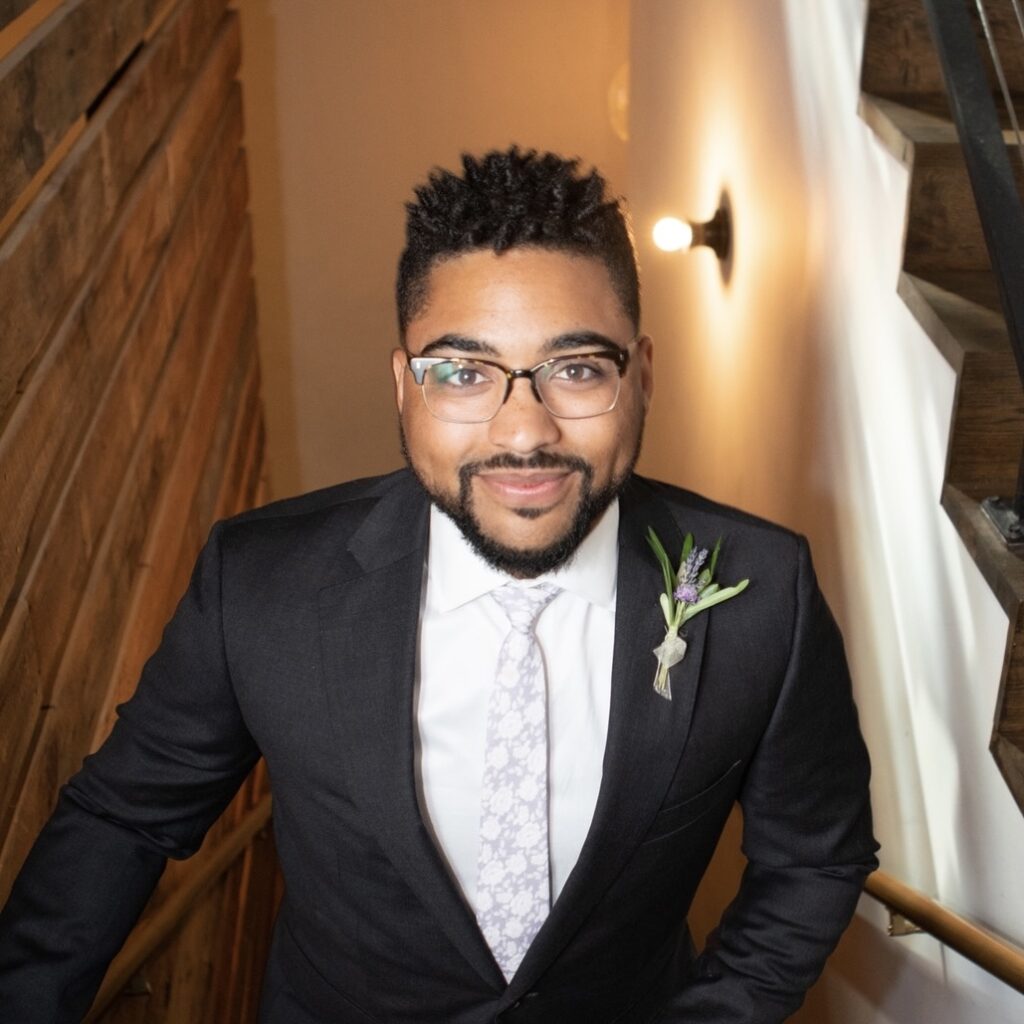By: Daniel Fairley II
This vlog is the second in a series. View the first blog entitled “Youth at the Intersection of the Movement for Racial Justice and the COVID-19 Pandemic.”
Highlights:
- I am the Youth Opportunity Coordinator focused on Black Male Achievement in the City of Charlottesville.
- In my work, I identify and direct opportunity-youth toward targeted services, and liaison with agencies, schools, special interest groups and organizations serving at-risk youth, especially minority children and youth or any other children who fall within the achievement gap definition, while overseeing policy and program implementation.
- In this video blog and for Mental Health Awareness month, I share more about mental health changes I’ve seen in the pandemic and how we can support youth going forward.
We have to come to terms with the idea that our mental health needs have changed and will continue to be a large part of the conversation going forward. We as humans were not built to live in isolation, without community and fellowship, or going outside with sunshine. We aren’t built for how we’ve been living the last two years during the pandemic.
The renewed focus on mental health is something that is going to fundamentally change who we are, how we navigate throughout the world, the things we take for granted, what we are looking forward to and more. All these things are changing because we have to come to terms with the idea that what we were doing before was not sustainable. For many, not addressing our mental health and the issues we were facing with our families and in the workforce was really toxic.
There are so many opportunities right now to reshape our culture and that has to start with mental health.
What are we doing to take care of ourselves and our families? How will that permeate throughout the rest of our society?
Youth & Mental Health
For the youth I work with, they are no longer afraid to ask for help. More so in last two years I’ve noticed youth have the ability to:
- Understand what is going on with themselves or doing a self-analysis,
- Naming what that self-analysis comes up with, and
- Being able to act upon it or ask for help.
Youth are not afraid to say “this is an issue I’d like adults to work with me on.” It’s become a part of their culture, in a really healthy way. Oftentimes youth know when something needs to happen for them – they know if they need to ask for medication, talk with someone, work with their friends, or ask someone for help – and that is a really good thing for mental health.
What Adults Can Do
Adults should not dismiss feelings or actions from youth about their mental health. Avoid saying things like “back in my day, this wasn’t an issue or we didn’t have depression or anxiety.” That is just not true. There were these similar issues but there may not have been words to describe or label them. Hopefully now we are starting to share these experiences and in ways that minimize how it affects others in the future.
Be vulnerable youth and share whatever is appropriate with your own experiences around mental health too. Allow them to see you. Once youth see the genuine and authentic you, then they will connect more. Breakdown “I am the teacher, mentor, adult in charge” and “you are the small person that only has the ability to learn from me.” Shift those roles and blend the idea that I, as an adult, can learn from you and you, as a youth, can learn from me. With this shift adults will see a greater impact.
If you need help or are in a mental health crisis, please ask for assistance and use resources available:
- 24/7 Teen Counseling Hotline in Charlottesville: (434) 972-7233
- ReadyKids Teen Counseling Program
- Shelter for Health and Emergency
- Resources for Youth in Crisis
Daniel is also a local steering committee member for the University of Virginia Equity Center with which Youth-Nex is affiliated.
If you have any comments or questions about this post, please email Youth-Nex@virginia.edu. Please visit the Youth-Nex Homepage for up to date information about the work happening at the center.

Author Bio: Daniel Fairley II received his Bachelor of Arts in Psychology from the University of Richmond and his Master’s in Higher Education and Student Affairs Administration from the University of Vermont (UVM). He was awarded the Kenneth P. Saurman Memorial Award and Richard F. Stevens Outstanding Graduate student in the State of Vermont for his dedication to social justice and stellar academics. Daniel’s professional experience includes interning with the Operations department of The White House under the Obama Administration. He also worked as an Assistant Residence Director in the Department of Residential Life at UVM, and as the Area Coordinator at the University of Virginia in the Department of Housing and Residence Life. Daniel volunteered with the 100 Black Men of Central Virginia and the Charlottesville Dialogue on Race, which led to his current position as a Youth Opportunity Coordinator focused on Black Male Achievement for the City of Charlottesville. He now serves as the President of the 100 Black Men of Central Virginia and Board Member for Loaves & Fishes food pantry.
